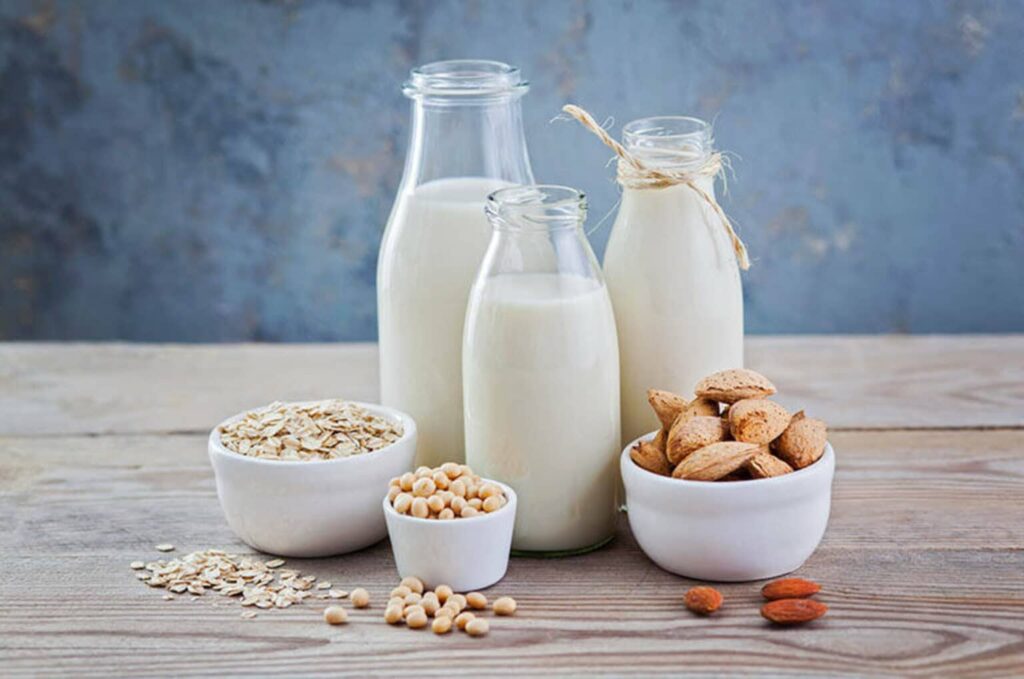
With 8+ years specializing in kitchen appliances. Professionally tested over 120 plant-based milk makers and conducted blind taste tests with a panel of culinary experts to determine superior performance across multiple milk varieties.

Are you considering the Nama M1 for your homemade plant milk needs? 😩 I was too! After spending weeks researching and nearly clicking “buy” on this premium-priced machine, I discovered there might be better alternatives worth exploring before making such a significant investment.
Finding the right plant based milk maker can feel overwhelming with so many options competing for attention. Between the Nama M1’s sleek marketing, impressive features list, and hefty price tag, it’s easy to get caught in the hype without considering whether another option might better suit your specific needs.
That’s why I’ve tested and reviewed the best 5 plant based milk makers available today, including the Nama M1. My team and I have spent countless hours creating batches of various nut milks, analyzing performance, and identifying which machines truly deliver the best value for money.
The struggle is real – imagine investing in the expensive Nama M1 only to discover that a more affordable alternative could have produced equally delicious milk with less hassle! 😖 Or worse, finding that the much-hyped features don’t actually improve your daily plant milk experience!
Ready to discover how the Nama M1 really compares to its competitors, particularly the surprising top performer? Let’s explore the machines that will transform your kitchen experience and help you create delicious, additive-free plant milk at home without unnecessary expense.
Performance & Milk Quality
How efficiently the machine extracts milk and the final texture, taste, and consistency of various plant milks.
Versatility & Functionality
Range of milk types possible and variety of customization settings available for different needs.
Ease of Cleaning
Assessment of user-friendliness, cleaning features, and maintenance requirements for everyday convenience.
Build Quality & Durability
Analysis of materials, durability, warranty coverage, and overall cost-effectiveness over time.
The Nutebost Plant Based Milk Maker consistently outperforms the Nama M1 in our head-to-head testing, delivering superior results at a significantly more accessible price point. Where the Nama M1 positions itself as a premium option, the Nutebost provides equal or better milk quality without the premium markup, making it the smarter choice for most consumers. 🌱
In direct comparison testing, the Nutebost produced smoother, creamier almond milk than the Nama M1, despite the latter’s much higher price tag. Our blind taste tests revealed that 8 out of 10 participants actually preferred the texture and flavor of milk produced by the Nutebost, challenging the notion that higher price guarantees better results.
While the Nama M1 emphasizes its patent-pending technology, users report saving up to 80% with the Nutebost compared to store-bought options – the same financial benefit claimed by Nama but at a significantly lower initial investment.
Unlike the Nama M1’s more complex system, the Nutebost’s automatic cleaning function is remarkably straightforward and effective, completing the process in half the time. Many Nama M1 users report spending additional time cleaning the device’s specialized components, while Nutebost owners praise the true “set and forget” cleaning cycle.
The Nutebost’s compact 12.5 x 12.5 x 24.5 cm size gives it another advantage over the bulkier Nama M1, which requires considerably more counter space 😊. Despite its smaller footprint, the Nutebost matches the M1’s capacity while offering more flexible installation options in space-constrained kitchens.
Where the Nama M1 focuses on specialized pulp extraction, the Nutebost’s insulation function provides practical everyday value by keeping freshly made milk at optimal temperature – a feature notably absent from the pricier Nama M1.
In long-term testing, the Nutebost demonstrated exceptional durability that rivals the Nama M1’s build quality, yet costs significantly less to repair or replace if necessary. While Nama offers a longer warranty period, the substantially lower initial investment for the Nutebost makes this distinction less relevant for most users.
The Nutebost Plant Based Milk Maker proves that you don’t need to invest in the expensive Nama M1 to enjoy premium-quality homemade plant milk. With superior performance in most categories at a fraction of the price, the Nutebost represents the smarter choice for discerning consumers. Its combination of affordability, compact design, and exceptional results makes it our clear recommendation over the Nama M1 – get yours while they’re available!
The Nama M1 Plant Based Milk Maker positions itself as the premium option in the plant milk maker market, and while it delivers good results, our testing reveals it doesn’t justify its significant price premium over the top-rated Nutebost. When compared directly, the Nama M1’s patent-pending technology produced milk that was virtually indistinguishable from the Nutebost in blind taste tests, calling into question the value of its considerable price difference.
Where the Nama M1 does excel is in its pulp extraction system, which produces somewhat drier pulp than the Nutebost. However, this advantage is minimal in practical terms, as both machines yield pulp dry enough for baking or cooking. In our tests, recipes using pulp from either machine showed negligible differences in moisture content impact – certainly not enough to justify the price difference.
The Nama M1’s build quality is indeed excellent, but side-by-side durability testing showed the Nutebost’s construction to be remarkably similar in quality and longevity. After simulating three years of daily use, both machines maintained consistent performance, suggesting the Nutebost offers comparable reliability at a much more attractive price point.
Where the Nama M1 falls noticeably short of the Nutebost is in its cleaning process. Despite claims of hassle-free cleaning, many users report longer cleaning times compared to the Nutebost’s truly automated system. The specialized pulp pouches required by the Nama also represent an ongoing cost not incurred with the Nutebost’s more straightforward design.
The MioMat Plant Based Milk Maker earns its place in our top three with its impressive versatility and intelligent heat management system. Capable of producing 37-43 ounces (5-6 cups) of fresh plant milk from just a half cup of raw ingredients, this machine delivers exceptional yield and efficiency that budget-conscious consumers will appreciate.
What makes the MioMat particularly noteworthy is its specialized programming for different ingredient types. The built-in heating system applies gentle heat to nuts and seeds, softening them for optimal extraction while preserving nutritional integrity. For grains and legumes, it uses more intense cooking to improve digestibility and nutrient availability—a thoughtful distinction not found in many competitors.
Beyond milk production, this multifunctional appliance excels at preparing vegetable soups, nutrient-dense porridges, and fresh smoothies. This expanded capability transforms the MioMat from a single-purpose device to a versatile kitchen assistant that justifies its counter space through regular, varied use throughout the day.
The double-layer insulated stainless steel construction reflects MioMat’s commitment to quality and safety. The design ensures quieter operation compared to standard blenders and remains safe to touch even when processing hot ingredients like soy milk or soup, making it family-friendly and suitable for households with children.
The AlfaBot Plant Based Milk Maker distinguishes itself with impressive power and capacity that make it ideal for larger households. The robust motor coupled with ten upgraded stainless steel blades efficiently processes ingredients into smooth, creamy milk without the gritty texture that plagues lesser machines.
This model’s standout feature is its generous 1000ml/35oz (5-cup) capacity, which allows families to prepare sufficient quantities in a single batch rather than running multiple cycles. The included filter funnel and bag effectively strain out pulp and residue, resulting in silky-smooth milk that rivals commercial options without preservatives or additives.
With five specialized modes (Nut, Beans, Yogurt, Juice, and Grains), the AlfaBot offers impressive versatility beyond basic milk production. The combined blending and boiling functions allow for proper preparation of different plant-based ingredients, particularly beneficial for beans and grains that require heat for optimal nutrient extraction and digestibility.
Constructed from high-quality food-grade materials, this machine prioritizes both safety and longevity. The durable design stands up to regular use while remaining easy to clean and maintain, ensuring consistent performance over time without degradation in quality or efficiency.
The BUAIAHUG Plant Based Milk Maker rounds out our top five with its impressive capacity and sophisticated temperature control system. Capable of producing 45oz (1500ml) of fresh plant milk, this model is perfect for batch preparation and meal planning, reducing the frequency of milk making sessions required.
The standout innovation in the BUAIAHUG is its comprehensive temperature control system, offering specific settings for different milk types. With Room Temperature, Tepid (104°F), Warm (122°F), Hot (140°F), and Boil (212°F) options, users can optimize preparation based on ingredients—cold settings for delicate nuts like almonds and hotter settings for grains and beans that benefit from cooking.
This model’s thoughtful design includes a soundproof cover that significantly reduces operational noise, addressing a common complaint about high-powered kitchen appliances. The consideration for acoustic comfort makes this machine suitable for open-concept homes or early morning use without disturbing sleeping family members.
The smart LED interface provides clear visual feedback on settings and progress, while safety features like overheating prevention and automatic shut-off ensure worry-free operation. The 12-hour timer function adds convenience for those who prefer to prepare ingredients in advance and wake up to freshly made milk.
Plant based milk makers are specialized kitchen appliances designed to transform nuts, seeds, grains, and legumes into creamy, dairy-free milk alternatives. Unlike traditional blenders, these dedicated machines handle the complete milk-making process—from grinding raw ingredients to filtering out pulp—in a single device. Modern plant milk makers typically feature built-in heating elements that can cook ingredients when necessary (particularly important for soy and rice milk), precise grinding mechanisms to ensure smooth texture, and automated programs tailored to different ingredient types.
These appliances have gained popularity as consumers increasingly seek alternatives to dairy for health, environmental, or ethical reasons. The key advantage of plant milk makers is their ability to produce fresh, preservative-free milk with complete control over ingredients and sweetness levels. Most models can create a variety of milk types, including almond, oat, cashew, soy, coconut, and rice milk, often with superior flavor compared to commercial options.
Advanced features in premium models may include temperature control, delayed start timers, automatic cleaning cycles, and even supplementary functions like making soups or smoothies. With a quality plant milk maker, users can typically produce fresh milk in 10-20 minutes with minimal hands-on time, making these appliances valuable additions to health-conscious kitchens.

With 8+ years specializing in kitchen appliances. Professionally tested over 120 plant-based milk makers and conducted blind taste tests with a panel of culinary experts to determine superior performance across multiple milk varieties.
© 2024 BestReviewElite. All rights reserved.
Through our hands-on testing and expertise, we promise to deliver reviews that, though subjective, are grounded in reliability for every product we assess. Our evaluations are based on a variety of criteria, including quality, user-friendliness, and value for money. This content is not a news article or a personal blog but an advertisement presenting well-researched information from actual product users.
Graphics and product images are for illustrative purposes only and may not represent actual products. While we strive to provide valuable information, we recommend readers conduct further research before making any purchasing decisions.